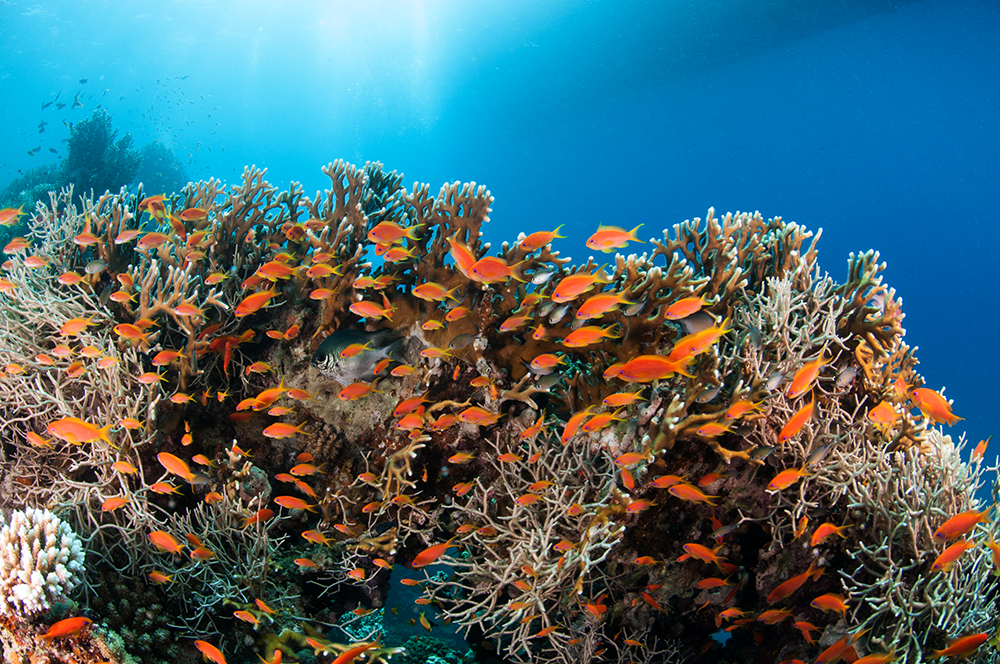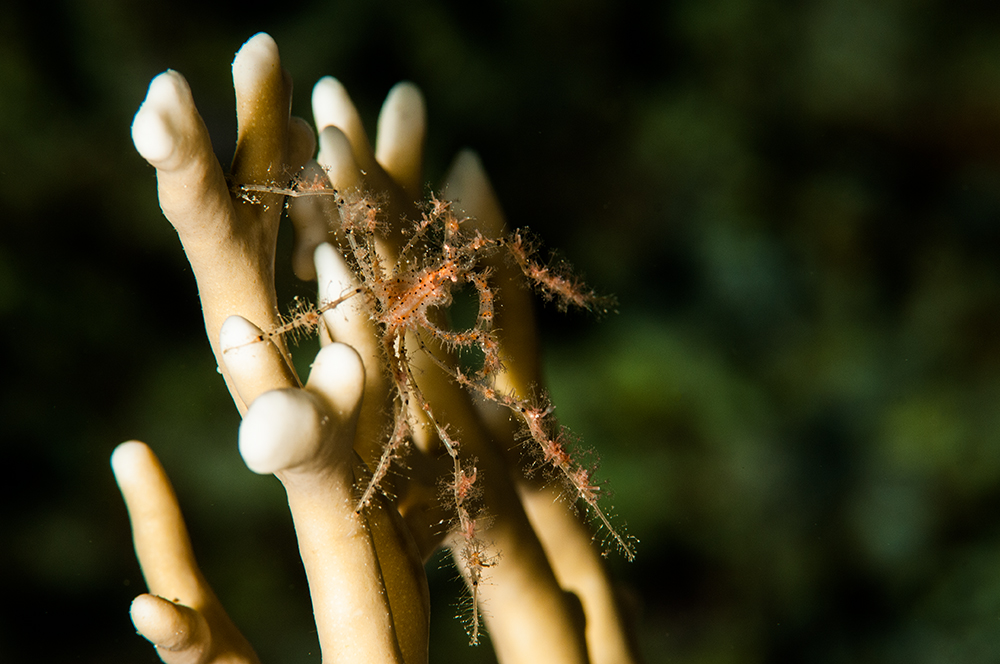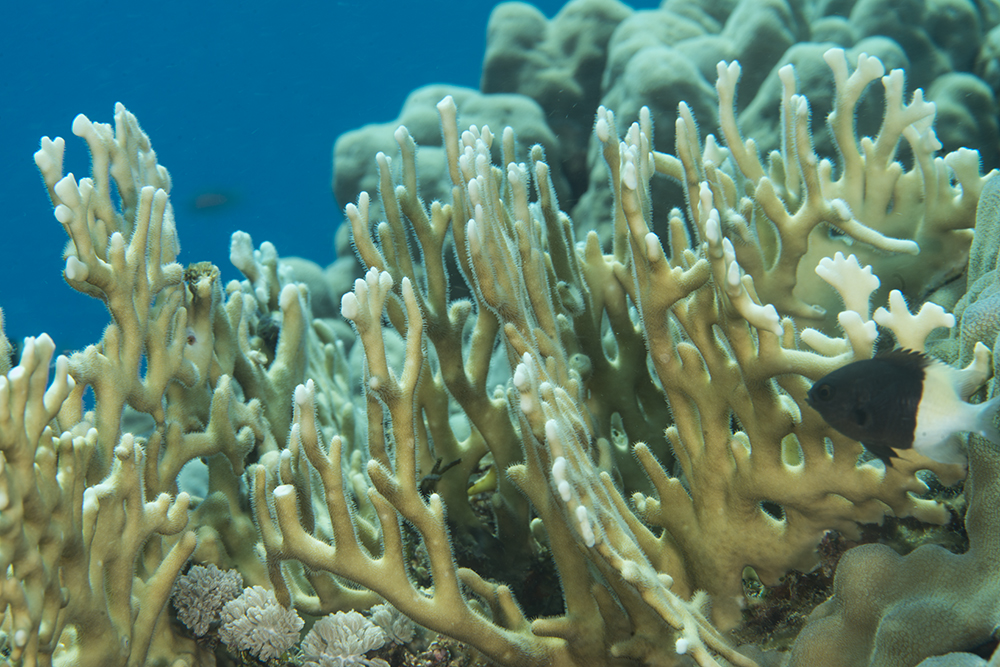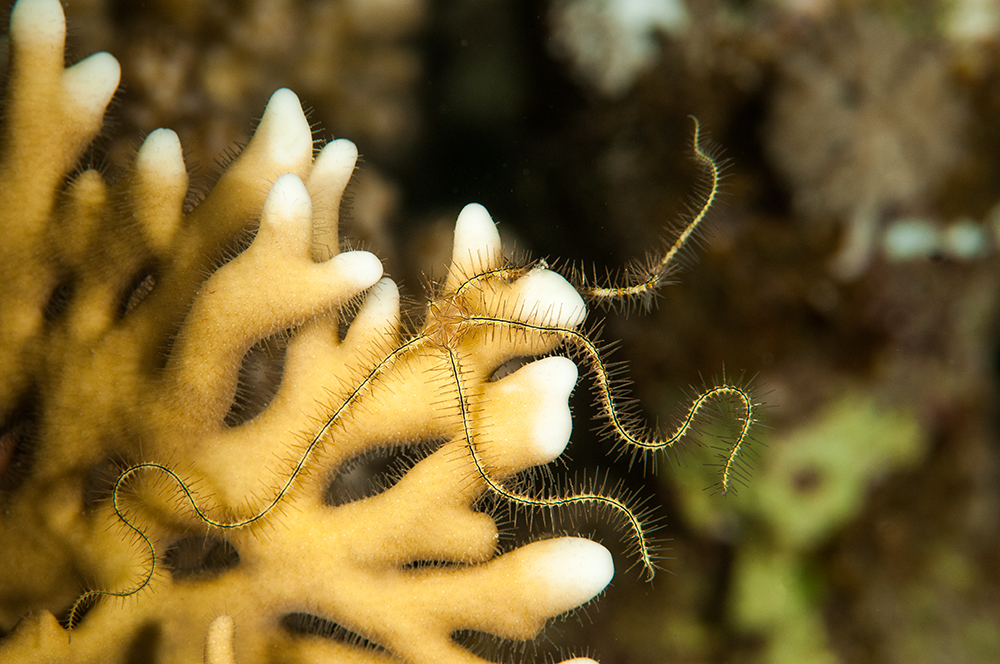 Despite looking like corals, housing photosynthetic zooxanthellae, and creating a calcareous skeleton like ‘true’ corals, the Fire Corals, Milleporidae are actually hydrozoans.
Despite looking like corals, housing photosynthetic zooxanthellae, and creating a calcareous skeleton like ‘true’ corals, the Fire Corals, Milleporidae are actually hydrozoans.
The pictures I have for you here, show Millepora dichotoma, the Net Fire Coral, a common species in the Indo Pacific; these images are from the Red Sea. This species is very common and is, at least in my experience, a quick growing colonizer of ‘new ground’ and forms part of most shallow reefs I’ve dived.
The coral gets its name from the painful stings that the animals’ nematocysts are capable of delivering. Typically, divers and swimmers are left with rashes that look like minor burns. While they can be painful, they are rarely dangerous; though the rash and skin irritation can last for two or more weeks in some cases.
If you look closely in these images, you can see the fine extensions from the animals’ surface. The polyps in these species do not extend in the same was as ‘true’ corals, the polyps themselves are very small – hence the name of Millepora, meaning ‘thousands of pores’.

Some small crustaceans have been shown to feed from trapped particles ‘ensnared’ by encrusting hydroids growing on their legs.
Fire corals are found growing at right angles to prevailing currents on the reef, indicating their ability to capture planktonic food, and interestingly, despite their sting, a wealth of smaller animals regular uses the structure of M. dichotoma to gather food themselves, from Featherstars to Crustaceans.
Reproduction in Fire Corals, is more similar to jellyfish than true corals, and polyps produce free swimming medusae which release gametes. Fertilized eggs form free swimming larvae which settle to form new colonies of Millepora.











0 Comments